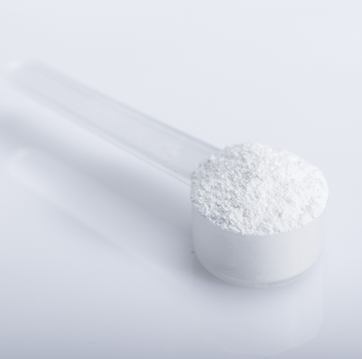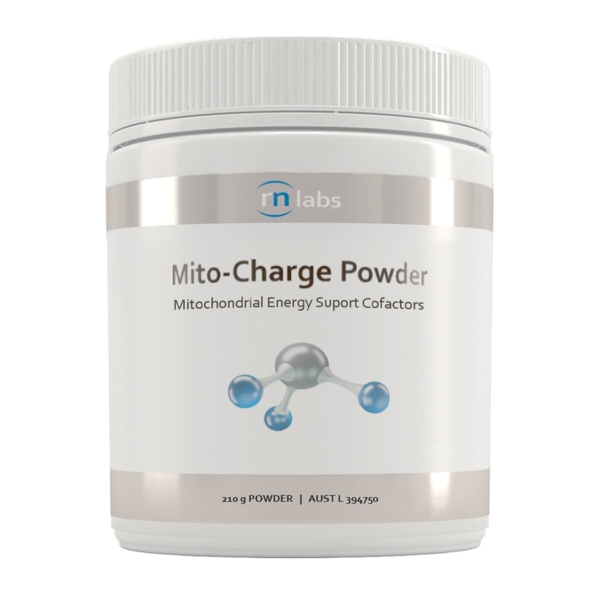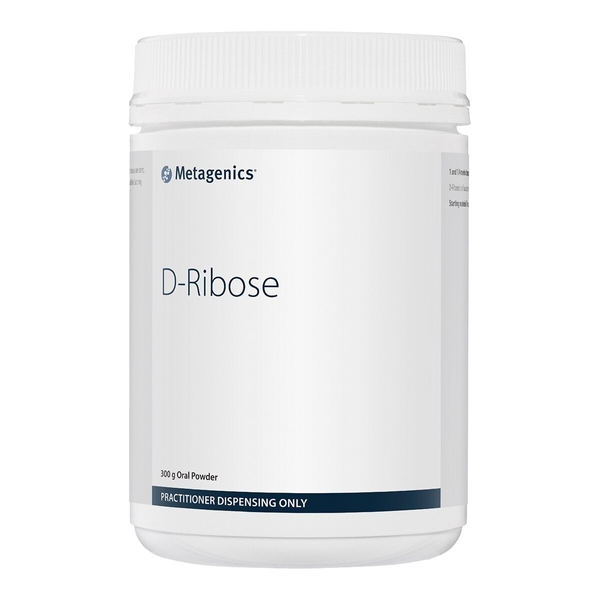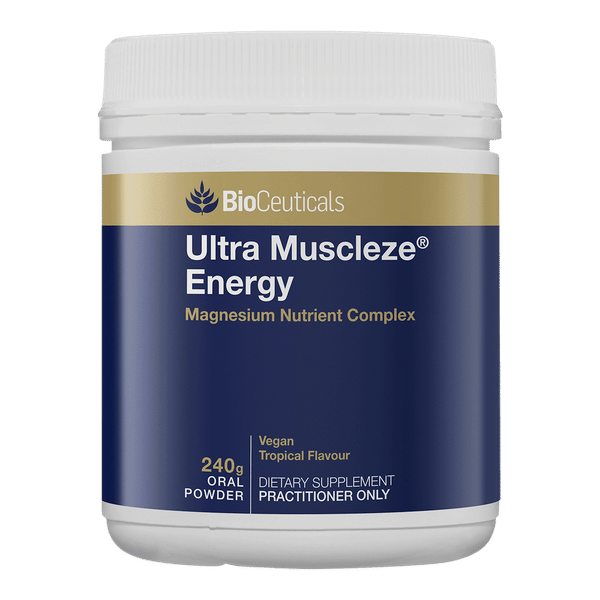
Ribose
Scientific names: Beta-D-ribofuranose
Alternate names: D-ribosa, D-ribose, Ribosa
Actions: Antiseizure, Cardiovascular, Diagnostic imaging, Exercise performance-enhancing, Metabolic
Background
Ribose is a sugar that is naturally produced by the body from food. It is a natural part of DNA and RNA and is required for many processes in the body.
Supplemental ribose might prevent muscle fatigue in people with certain genetic disorders that affect energy production by the body. It might also provide extra energy to the heart during exercise in people with heart disease.
People use ribose for heart disease, athletic performance, chronic fatigue syndrome, fibromyalgia, and many other conditions, but there is no good scientific evidence to support these uses.
Supplemental ribose might prevent muscle fatigue in people with certain genetic disorders that affect energy production by the body. It might also provide extra energy to the heart during exercise in people with heart disease.
People use ribose for heart disease, athletic performance, chronic fatigue syndrome, fibromyalgia, and many other conditions, but there is no good scientific evidence to support these uses.
Safety Safety definitions
When taken by mouth: Ribose is commonly consumed in foods. It is likely safe for most people when taken for up to 12 weeks as medicine. It can cause some side effects including diarrhea, stomach discomfort, nausea, headache, and low blood sugar. There isn't enough reliable information to know if ribose is safe to use long-term.
Surgery: Since ribose might lower blood sugar, it might interfere with blood sugar control during and after surgery. Stop taking ribose at least 2 weeks before a scheduled surgery.
Special Precautions & Warnings:
Pregnancy and breast-feeding: There isn't enough reliable information to know if ribose is safe to use when pregnant or breast-feeding. Stay on the safe side and stick to food amounts.Surgery: Since ribose might lower blood sugar, it might interfere with blood sugar control during and after surgery. Stop taking ribose at least 2 weeks before a scheduled surgery.
Effectiveness
NatMed Pro rates effectiveness based on scientific evidence according to the following scale: Effective, Likely Effective, Possibly Effective, Possibly Ineffective, Likely Ineffective, Ineffective, and Insufficient Evidence to Rate.
Possibly ineffective Effectiveness definitions
- Athletic performance. Taking ribose by mouth, alone or with other supplements, doesn't seem to improve athletic performance in trained or untrained adults.
- A rare, inherited disorder that causes muscle pain and cramping (McArdle disease). Taking ribose by mouth doesn't appear to improve exercise ability in people with McArdle disease.
Dosing & administration
There isn't enough reliable information to know what an appropriate dose of ribose might be. Keep in mind that natural products are not always necessarily safe and dosages can be important. Be sure to follow relevant directions on product labels and consult a healthcare professional before using.
Interactions with pharmaceuticals
Insulin
Interaction Rating=Moderate Be cautious with this combination.
Ribose can lower blood sugar. Insulin is also used to decrease blood sugar. Taking ribose along with insulin might cause your blood sugar to drop too low. The dose of your insulin might need to be changed.
Medications for diabetes (Antidiabetes drugs)
Interaction Rating=Moderate Be cautious with this combination.
Ribose might lower blood sugar levels. Taking ribose along with diabetes medications might cause blood sugar to drop too low. Monitor your blood sugar closely.
Interactions with herbs & supplements
Herbs and supplements that might lower blood sugar: Ribose might lower blood sugar. Taking it with other supplements with similar effects might lower blood sugar too much. Examples of supplements with this effect include aloe, bitter melon, cassia cinnamon, chromium, and prickly pear cactus.
Interactions with foods
There are no known interactions with foods.
Products
View all productsPer 7.5 g:
- D-Ribose 4.6 g
- Acetyl levocarnitine hydrochloride (Acetyl-L-carnitine) 1 g
- Calcium pyruvate 666 mg equiv. calcium 100 mg
- Magnesium citrate 647 mg equiv. magnesium 100 mg
- Calcium pantothenate (Vitamin B5) 65 mg equiv. pantothenic acid 60 mg
- Taurine 50 mg
- Biotin 1 mg
- Nicotinamide riboside chloride (Vitamin B3) 100 mg equiv. ribose 52 mg
Practitioner product
Per 4.5 g:
Practitioner product
Per 8 g (Tropical):
- D-Ribose 200 mg
- L-glutamine 500 mg
- Taurine 500 mg
- Magnesium amino acid chelate 3.2 g equiv. magnesium 320 mg
- Levocarnitine tartrate (L-carnitine) 293.25 mg equiv. levocarnitine 200 mg
- Calcium ascorbate dihydrate (Vitamin C) 121.7 mg equiv. ascorbic acid 100 mg equiv. calcium 11.44 mg
- Thiamine hydrochloride (Vitamin B1) 30 mg
- Riboflavin (Vitamin B2) 25 mg
- Nicotinamide (Vitamin B3) 50 mg
- Calcium pantothenate (Vitamin B5) 87.3 mg equiv. pantothenic acid 80 mg equiv. calcium 7.34 mg
- Pyridoxine hydrochloride (Vitamin B6) 30.4 mg equiv. pyridoxine 25 mg
- Calcium folinate (Activated folate) 163.2 μg equiv. folinic acid 150.4 μg
- Hydroxocobalamin (Vitamin B12) 100 μg
- Calcium hydrogen phosphate dihydrate 171.7 mg equiv. calcium 41.38 mg
- Chromium picolinate 200.8 μg equiv. chromium 24.8 μg
- Potassium aspartate 53.3 mg equiv. potassium 11 mg
- Selenomethionine 62.4 μg equiv. selenium 24.8 μg
- Zinc amino acid chelate 25 mg equiv. zinc 5 mg
- Pyridoxal 5-phosphate monohydrate (P5P) 36.5 mg equiv. pyridoxine 25 mg
- Ubidecarenone (Coenzyme Q10) 75 mg
- Riboflavin 5-phosphate sodium (Activated B2) 34.2 mg equiv. riboflavin 25 mg
Practitioner product
vital.ly has licensed monographs from TRC Healthcare.
This monograph was last reviewed on 17/06/2024 10:00:00 and last updated on 12/08/2020 02:21:16. Monographs are reviewed and/or updated multiple times per month and at least once per year.
Natural Medicines disclaims any responsibility related to medical consequences of using any medical product. Effort is made to ensure that the information contained in this monograph is accurate at the time it was published. Consumers and medical professionals who consult this monograph are cautioned that any medical or product related decision is the sole responsibility of the consumer and/or the health care professional. A legal License Agreement sets limitations on downloading, storing, or printing content from this Database. No reproduction of this monograph or any content from this Database is permitted without written permission from the publisher. It is unlawful to download, store, or distribute content from this site.








